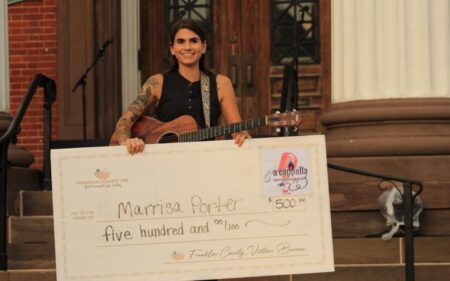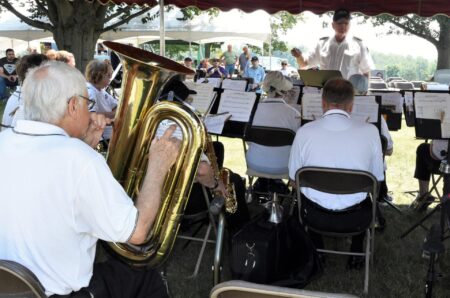KLAIPEDA, Lithuania—War is underway in nearby Ukraine but university life maintains its quick pace. When the war broke out in late February, LCC International University students dropped by my office to chat about their futures. In the wake of Russia’s intrusion Ukraine, a huge country that is about the same size as Texas and considered the crossroads between Europe and Asia.
Klaipeda is the third largest city in Lithuania, a country of about 3 million. The state of Maryland has twice the population of Lithuania.
A port city where the Baltic Sea meets the Danė River, Klaipeda is known for its beaches, just a couple of miles from LCC. These days more and more people are venturing to the Baltic to enjoy the sun or a stroll on a long boardwalk.
The Baltics, including Lithuania, were annexed by the Soviet Union in 1940 and Lithuania was the first of these countries to declared independence in 1990. We celebrate freedom and independence in January and February.
With daily reports of Russia battering nearby Ukraine, Lithuanians are calling Russian President Vladimir Putin a bandit and worse. With the communist-influenced Belarus to Lithuanian’s southern border, Lithuania is now home to more than 11,000 Ukrainian refugees, according to Lithuania’s Ministry of Interior. Residents here are counting on NATO to prevent Russia from trying to occupy Lithuania again but they are nervous that history may repeat itself.
Amid these grim reports, summer university classes are underway.
Anastasia, whose name means resurrection, was one of my 100 students during the spring 2022 semester. She is a tall woman dressed in the typical fashion of Lithuania —black blazer, black leggings and black combat boots. I only recently began to recognize her after months of face masks. As we chatted in my crowded office, home to four professors, I noticed Anastasia’s eyes appeared wet despite the green eye makeup.
“My father is a veterinarian,” she said. “He’s 45, but he’s been called up to fight for the Russians. He has no choice.”
We prayed together, a somewhat rare occurrence between students and professors.
“I’m not religious,” she said.
The students at LCC are resilient. They come to class and rarely take off their coats, even in May when the sun pokes its way through the clouds. They keep their feelings to themselves until asked, and then they politely tell of the pain in a matter-of-fact way.
Ukrainian students and Russian students weren’t talking much either. Kris, a Russian student who wore a baseball cap, isn’t embarrassed about the invasion, he said. He’s just worried about his family, who are within 60 kilometers (37 miles) of the Ukrainian border.
Maryna, another student from Ukraine dressed all in black, recently began her day in tears over the fear of what will be as long as war continues. She said the reports of war make her cry and wondered how many more of her countrymen will die.
One of our top students, a woman from Kyiv, dropped out of the spring semester and I haven’t been able to contact her in weeks. Another of my senior students left campus to join the Ukrainian army.
I dropped him a note on email in late April and he responded. “Thank you. I appreciate it,” the note said simply, adding, “How are you?”
In a class that explores the development of journalism in the West, students talked about misinformation and the problems with audiences that don’t seem to understand that state news is often distorted.
I suggested a different view, saying, “Audience aren’t so easily fooled.”
Yaraslau of Belarus, a tall student with an explosion of blond hair, guffawed, saying, “You don’t understand Russia.”
Other seniors had similar expressions and participated in a small convenience poll designed to help build a scientific survey for the fall semester.
- A student from Belarus noted, “I am following Radio Liberty (Belarusian edition) to see what is going on. Radio Liberty is independent from Belarusian regime and has no interest in supporting the aggressors.”
- A Russian student who says he was born in Lithuania praised the BBC and Twitter feeds from independent sources but added, “A lot of Russian-based sources misrepresent, misinform and further mislead their readers/viewers in this media propaganda war – they should not be trusted and any news originating from Russia should be evaluated carefully,” he said.
- However, another student from Russian, countered, “I trust either Ukrainian sources or a few independent Russians ones that have proven themselves worthy to me in recent years.” She added, the worst source for news: “The ones that portray Russians as victims.”
LCC is a novel, faith-based university that brings Russians, Ukrainians and many others together to learn and interact. We have an entire program built on peace studies. This university may be the best crucible for learning another person’s heartbeat in the entire world, and I am honored to be part of it.
Walking down a hall at our university is a testament to the languages heard daily in the United Nations. The difference: Faculty, students and staff seek unity without seeking uniformity.
While public prayer is not seen often, student groups join faculty and others and intercede for students and families from all over who are suffering. One Ukrainian who recently spoke at a church just a few blocks from the sea asked for prayer for Ukrainians and Russians, adding, “My God make a miracle.”
On the quad of LCC, crows the size of feral cats, dart back and forth to the nearby Baltic port. The warm weather promises a robust holiday season on the Baltic and residents are hopeful that with summer, God will make a miracle.
Waynesboro, Pa.’s Michael Ray Smith is a professor of communication at LCC International University. He is a freelance writer for Religion Unplugged and other periodicals. www.michaelraysmith.com. He can be reached at [email protected].





















